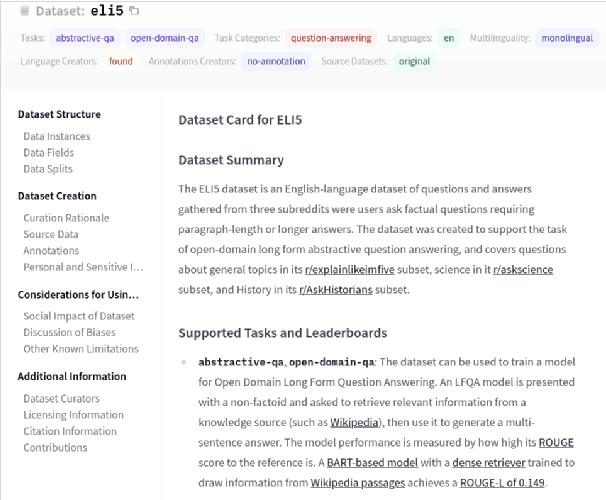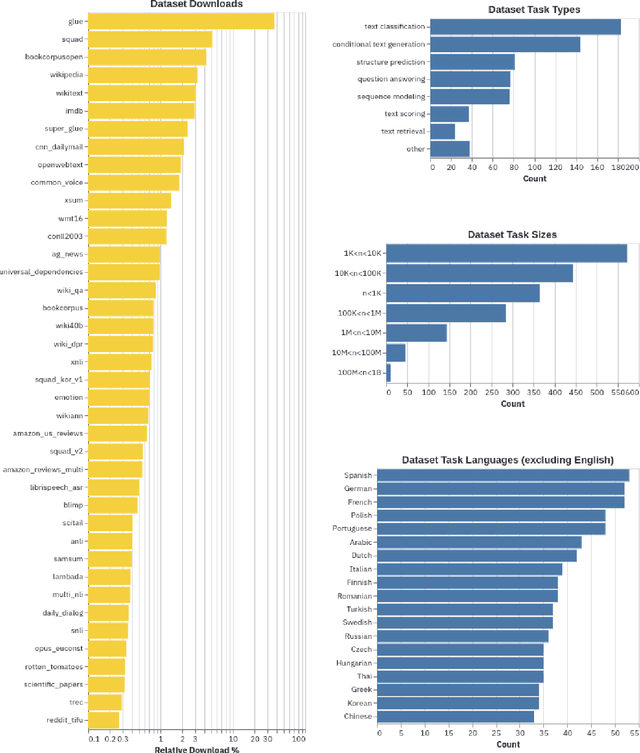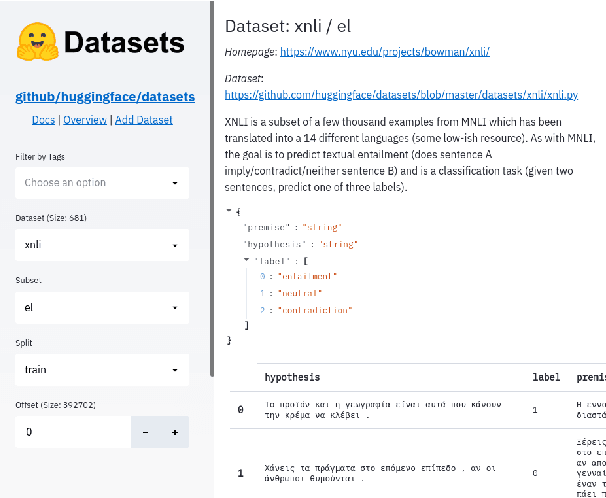Sylvain Gugger
Datasets: A Community Library for Natural Language Processing
Sep 07, 2021


Abstract:The scale, variety, and quantity of publicly-available NLP datasets has grown rapidly as researchers propose new tasks, larger models, and novel benchmarks. Datasets is a community library for contemporary NLP designed to support this ecosystem. Datasets aims to standardize end-user interfaces, versioning, and documentation, while providing a lightweight front-end that behaves similarly for small datasets as for internet-scale corpora. The design of the library incorporates a distributed, community-driven approach to adding datasets and documenting usage. After a year of development, the library now includes more than 650 unique datasets, has more than 250 contributors, and has helped support a variety of novel cross-dataset research projects and shared tasks. The library is available at https://github.com/huggingface/datasets.
fastai: A Layered API for Deep Learning
Feb 16, 2020



Abstract:fastai is a deep learning library which provides practitioners with high-level components that can quickly and easily provide state-of-the-art results in standard deep learning domains, and provides researchers with low-level components that can be mixed and matched to build new approaches. It aims to do both things without substantial compromises in ease of use, flexibility, or performance. This is possible thanks to a carefully layered architecture, which expresses common underlying patterns of many deep learning and data processing techniques in terms of decoupled abstractions. These abstractions can be expressed concisely and clearly by leveraging the dynamism of the underlying Python language and the flexibility of the PyTorch library. fastai includes: a new type dispatch system for Python along with a semantic type hierarchy for tensors; a GPU-optimized computer vision library which can be extended in pure Python; an optimizer which refactors out the common functionality of modern optimizers into two basic pieces, allowing optimization algorithms to be implemented in 4-5 lines of code; a novel 2-way callback system that can access any part of the data, model, or optimizer and change it at any point during training; a new data block API; and much more. We have used this library to successfully create a complete deep learning course, which we were able to write more quickly than using previous approaches, and the code was more clear. The library is already in wide use in research, industry, and teaching. NB: This paper covers fastai v2, which is currently in pre-release at http://dev.fast.ai/
MultiFiT: Efficient Multi-lingual Language Model Fine-tuning
Sep 10, 2019



Abstract:Pretrained language models are promising particularly for low-resource languages as they only require unlabelled data. However, training existing models requires huge amounts of compute, while pretrained cross-lingual models often underperform on low-resource languages. We propose Multi-lingual language model Fine-Tuning (MultiFiT) to enable practitioners to train and fine-tune language models efficiently in their own language. In addition, we propose a zero-shot method using an existing pretrained cross-lingual model. We evaluate our methods on two widely used cross-lingual classification datasets where they outperform models pretrained on orders of magnitude more data and compute. We release all models and code.
 Add to Chrome
Add to Chrome Add to Firefox
Add to Firefox Add to Edge
Add to Edge